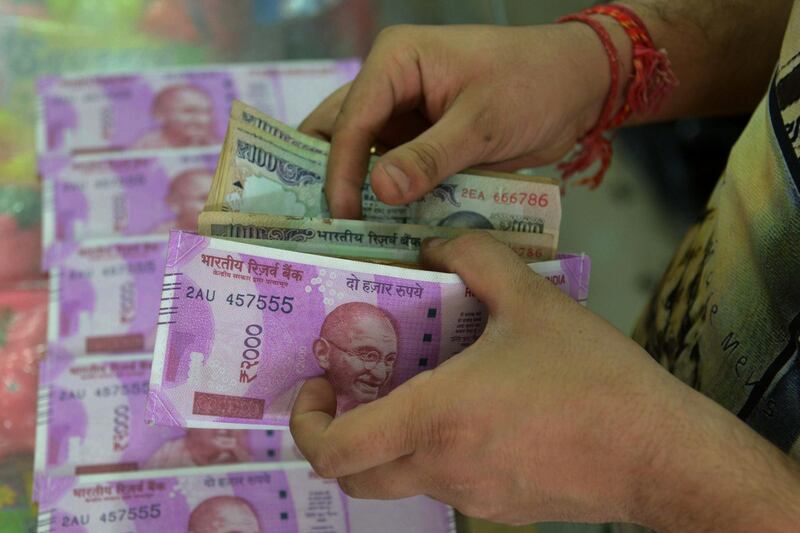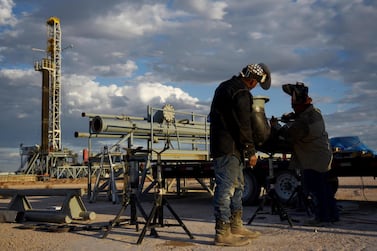Trading in oil markets is dominated by the dollar, but consumers and producers with growing muscle such as China and Russia have looked to challenge its pre-eminence in the oil trade by introducing their own petrocurrencies. China launched the petroyuan in 2018 on the Shanghai International Energy Exchange and Russia has toyed with the petrorouble in the past, albeit without much success. Could there be room for more petrocurrencies as the global dynamics of the energy industry are driven more by oil demand from centres such as India? Amit Bhandari, an energy and environment studies fellow at Mumbai-based Gateway House, argues in a recently-published paper that the time for a petrorupee has come, as the world's third-largest consumer continues to drive demand growth for oil.
What are the issues facing the established oil price benchmarks - Brent and West Texas Intermediate?
Brent is currently the biggest and most closely-followed benchmark but production from fields associated with it is less than 250,000 barrels per day. Brent is a light crude whereas most of the oil consumption around the world is of heavier and sour crudes. Now Brent is being traded in the UK. Thirty years ago, the US was the largest consumer and the European group of countries were the next largest consumers after that. Today, India consumes more oil than France and the UK combined and if you take India and China, they consume more oil than all of Europe.
Can the dominance of the dollar in the oil trade be challenged?
China now conducts part of its oil trade in its local currency, particularly with Russia. Trading in currencies other than the dollar can be a way for some oil producers to avoid US sanctions, but if oil is mainly being consumed in India or China, it makes sense for them to trade in their own currencies.
Until 1970, the Reserve Bank of India used to print currencies for Oman, Bahrain and until the 1960s, with the exception of Saudi Arabia, Kuwait Oman, Yemen, Bahrain and the UAE used the Indian rupee as their currency. So the rupee was a medium of exchange until very recently because India was the largest market in the region.
How successful has the petroyuan been as a disruptor?
So far it seems to be a little bit of a paper trade. The volume is very high - 200 million barrels of paper being traded every day, which is almost comparable to Brent or WTI contracts. The problem is that physical delivery seems to be very low - less than 1 per cent of daily trade. Secondly, the purpose of a financial market is price discovery and hedging. Hedging is not possible without put and call options, which do not exist on the Shanghai exchange. And the Chinese stock market is 40 per cent down from where it was five years ago or 10 years ago. So we feel that a lot of speculative money from the stock market has moved to the commodities exchanges.
Is the rupee an international currency today? Can it have an international role in the oil markets?
Not at the moment. For a very long time India's role in the world economy shrank. Post-1992, it started to expand a little bit, and as it does the rupee becomes a more viable medium for international trade. Trading in the Indian rupee will simply make it easier for the largest pool of consumers and if I'm Adnoc or Aramco and I'm selling oil to India, it makes more sense to have contracts denominated in rupees.
What are the advantages for India in the oil markets on the back of a petrorupee?
India often suffers when the US imposes sanctions on a number of countries. Right now there are sanctions on Russia, Iran and Venezuela - all three countries are major exporters of oil. If the use of rupees is more widespread, then some of the sanctions, those which are least serious, can simply be bypassed or avoided. The other advantage for India will be that Indian consumers (and companies) can hedge their risks better.
Is the petrorupee likely to face opposition from the US if the White House feels the currency could be used to avoid sanctions?
If the petrorupee has been created only to offset US sanctions, then it will run into American opposition. But some of the [Indian] policymakers believe that the sanctions on Russia are completely uncalled for and are counterproductive. The primary purpose of the petro rupee is better price discovery, enabling hedging etc. Bypassing sanctions is a supplementary benefit.








